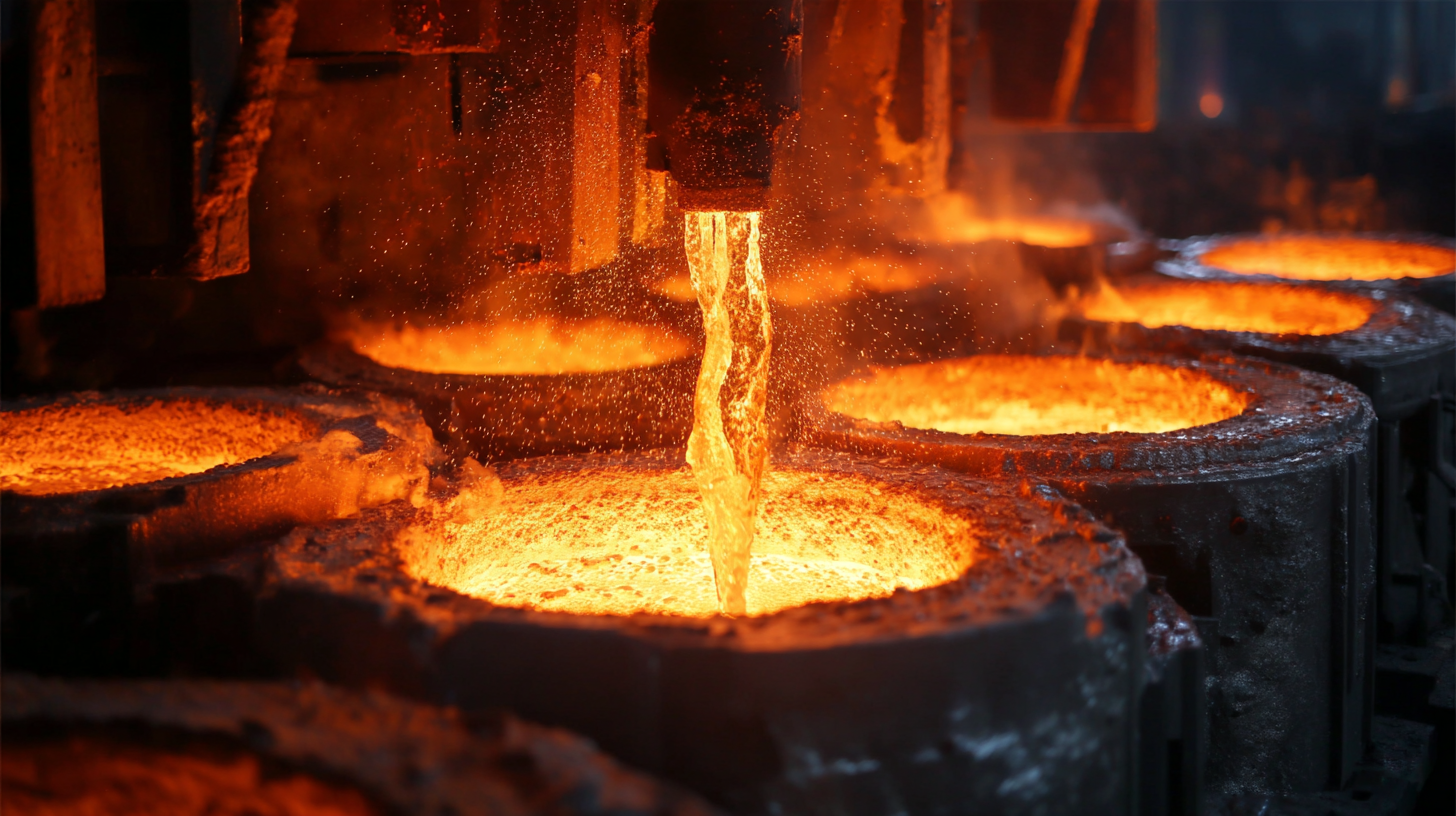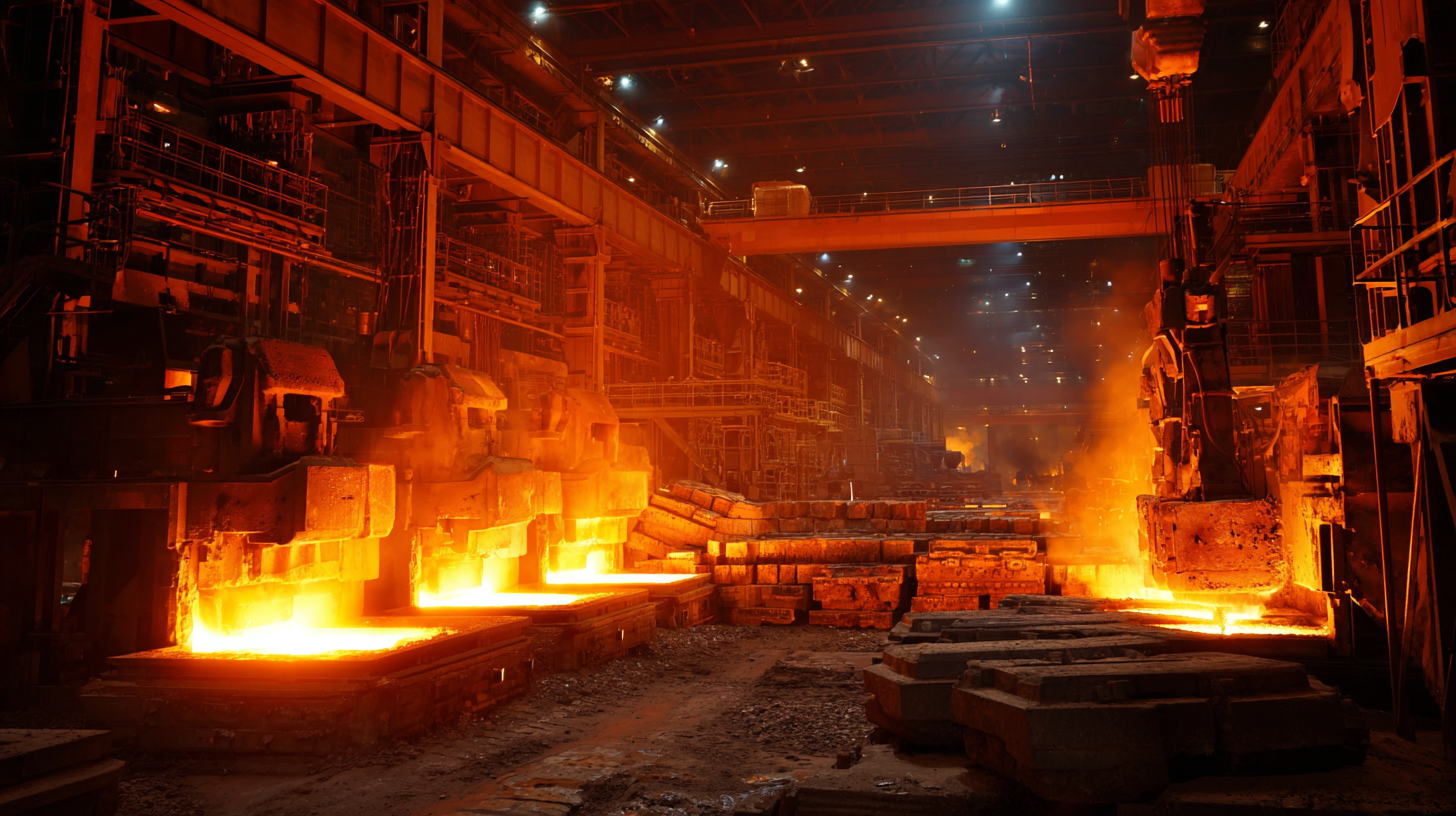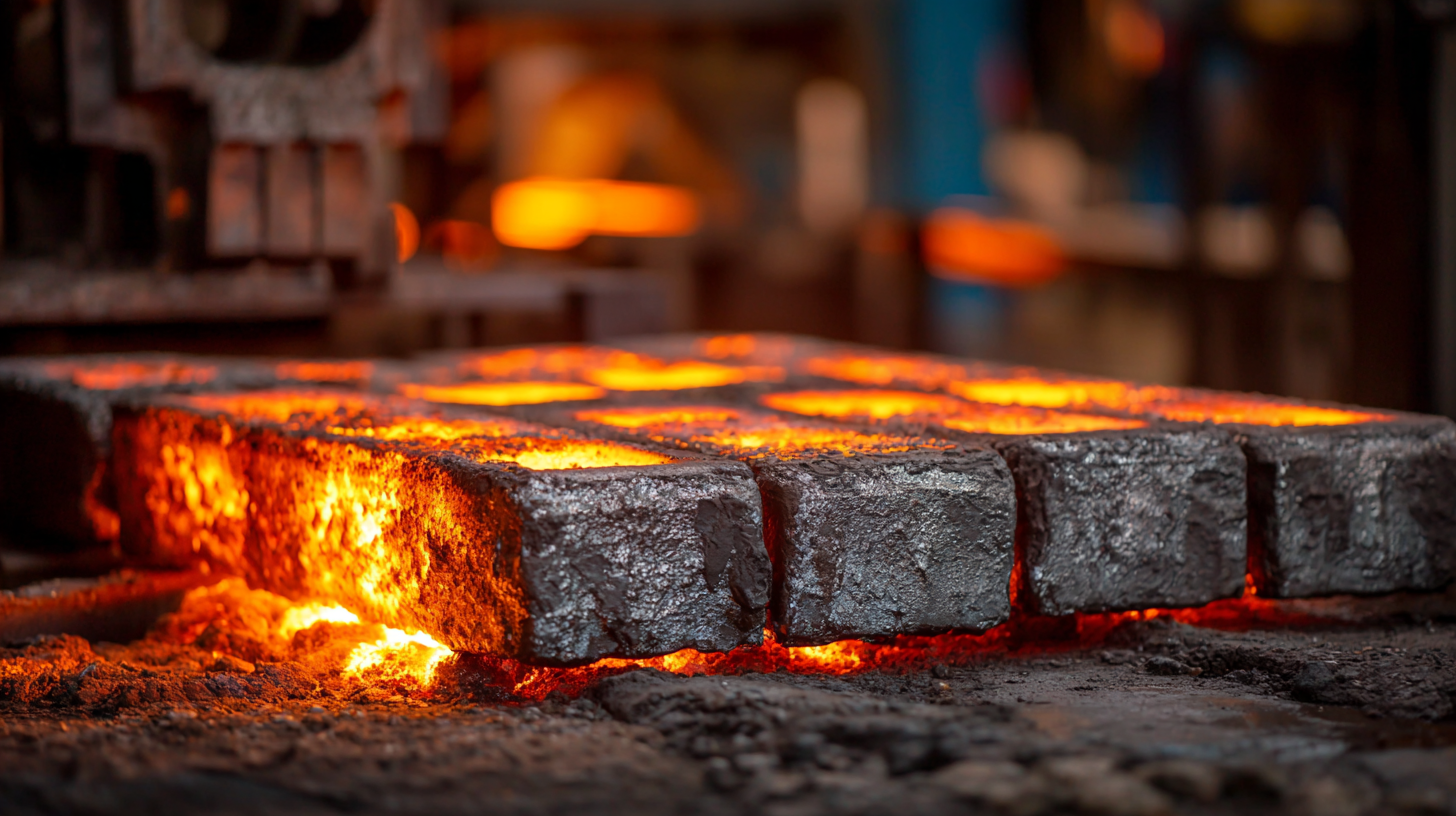The steel casting foundry industry is a critical segment of the global manufacturing landscape, with the market projected to reach approximately $30 billion by 2025, growing at a compound annual growth rate (CAGR) of 6.5%. As manufacturers strive to meet the increasing demand for high-quality steel castings, various challenges emerge that can impact efficiency, cost, and product quality. Issues such as fluctuating raw material costs, technological advancements, and stringent environmental regulations necessitate innovative solutions for the best steel casting foundries. Additionally, the growing emphasis on sustainability has prompted these foundries to adopt more eco-friendly practices, further complicating their operational dynamics. By understanding and addressing these challenges, the leading steel casting foundries can enhance their competitiveness and ensure long-term success in a rapidly evolving market.

Steel casting foundries face a myriad of challenges throughout the production process, impacting efficiency and product quality. One significant challenge is the control of material quality. The integrity of the steel used directly influences the casting outcome; impurities and inconsistencies can lead to defects in the final product. Foundries must invest in rigorous testing and quality assurance protocols to ensure that their raw materials meet stringent standards.
Another challenge is the complexity of the casting process itself. Factors such as mold design, temperature control, and cooling rates require meticulous attention to detail. Variations in any of these parameters can result in costly rework or scrap. Additionally, foundries must navigate changing regulations and tariffs that affect the cost of raw materials and market competitiveness. For instance, recent tariffs on steel imports have created an uncertain economic landscape, forcing foundries to adapt quickly to maintain profitability while delivering high-quality castings.
| Challenge | Description | Impact on Production | Solutions |
|---|---|---|---|
| Material Quality | Inconsistent raw material quality affecting the final product. | Leads to increased rework and scrap rates. | Implement stringent supplier quality assessments. |
| Process Control | Difficulties in maintaining consistent process parameters. | Can cause defects and variability in product quality. | Adopt automation and real-time monitoring systems. |
| Environmental Regulations | Compliance with evolving environmental standards. | May increase operational costs and complexity. | Invest in clean technologies and training. |
| Worker Safety | Ensuring a safe working environment for employees. | Accidents can lead to production delays and legal issues. | Regular safety training and audits. |
| Technical Skills | Shortage of skilled labor in advanced casting techniques. | Affects production efficiency and quality. | Enhance training programs and apprenticeships. |
Quality control is a critical component in the steel casting process, particularly in addressing common challenges faced by premier foundries. One significant issue that often arises is defects on the surface of cast products, such as spalling. Recent studies have uncovered that fluctuations in the mould level during the continuous casting process can catalyze these surface imperfections. By employing sophisticated data analysis and simulation techniques, researchers are delving deeper into the effect of mould level variations, aiming to enhance the overall surface quality of low-nickel austenitic stainless steel.
In addition to mould level control, the formation of inclusions during the casting process is another pressing concern for quality assurance in steel foundries. Inclusions, often caused by abnormal production processes, can significantly impair the mechanical properties of the final product. Advanced production process management techniques have been proposed to mitigate these quality control issues, emphasizing the necessity for integrated approaches that combine temperature prediction models and innovative mould management methods. By addressing these critical factors, steel casting foundries can improve their quality control measures and ultimately deliver superior products to the market.
In the ever-evolving landscape of steel casting, foundries face significant challenges in adapting to technological advancements. According to a report by Research and Markets, the global steel casting market is projected to reach USD 70 billion by 2025, primarily driven by innovations in manufacturing technologies. Leading foundries must not only invest in advanced casting processes, like 3D printing and automated pouring systems, but also stay abreast of developments in materials science that enhance the mechanical properties of cast products.
 Furthermore, the integration of Industry 4.0 technologies is reshaping operational efficiencies within steel casting foundries. A study by Deloitte indicates that adopting smart manufacturing solutions can increase productivity by up to 30%. However, many foundries encounter challenges in workforce training and adapting existing workflows to these new technologies, which require a skilled workforce proficient in both traditional forging methods and modern digital tools. As foundries strive to remain competitive, addressing these barriers is crucial for ensuring sustained growth and innovation in steel casting operations.
Furthermore, the integration of Industry 4.0 technologies is reshaping operational efficiencies within steel casting foundries. A study by Deloitte indicates that adopting smart manufacturing solutions can increase productivity by up to 30%. However, many foundries encounter challenges in workforce training and adapting existing workflows to these new technologies, which require a skilled workforce proficient in both traditional forging methods and modern digital tools. As foundries strive to remain competitive, addressing these barriers is crucial for ensuring sustained growth and innovation in steel casting operations.
 Supply chain management poses significant challenges for steel casting foundries, particularly in the current global landscape. The recent disruptions in various industries highlight the need for steel foundries to adapt and innovate their supply chain strategies. Factors such as tariff uncertainties and shifts in supplier availability result in increased manufacturing anxiety, especially for smaller firms that may lack the flexibility of larger operations. This situation necessitates a robust approach to managing supplier relationships and inventory to mitigate risks associated with potential disruptions.
Supply chain management poses significant challenges for steel casting foundries, particularly in the current global landscape. The recent disruptions in various industries highlight the need for steel foundries to adapt and innovate their supply chain strategies. Factors such as tariff uncertainties and shifts in supplier availability result in increased manufacturing anxiety, especially for smaller firms that may lack the flexibility of larger operations. This situation necessitates a robust approach to managing supplier relationships and inventory to mitigate risks associated with potential disruptions.
Moreover, the adoption of advanced technologies can serve as a game-changer in overcoming supply chain hurdles. For instance, AI-driven platforms can provide steel foundries with insights that enhance transparency and efficiency throughout the supply chain. By leveraging data analytics, foundries can make informed decisions regarding supplier selection and inventory management, thereby building a more resilient supply chain. Collaborations and partnerships can further support steel foundries in navigating these complexities, enabling them to share resources and expertise while striving for operational excellence.
The steel casting industry faces numerous challenges, with environmental regulations being among the most significant. As governments worldwide tighten their environmental policies to combat climate change and reduce pollution, foundries must adapt to comply with these new standards. This often involves updating processes, investing in new technology, and adhering to stricter emissions controls. The costs associated with compliance can strain the budgets of smaller foundries, yet they also provide an opportunity for innovation and operational efficiency.
Tip: To navigate the complex landscape of environmental regulations, foundries should consider implementing a sustainability assessment. This involves evaluating current practices and identifying areas for improvement. By integrating eco-friendly techniques and materials, foundries can not only comply with regulations but also enhance their market position.
Furthermore, regulatory compliance can drive the steel casting industry towards more sustainable practices. Foundries that adopt cleaner technologies often find that they can reduce waste and energy consumption, leading to cost savings in the long run. By proactively engaging with regulatory bodies and staying informed about upcoming changes, foundries can better prepare for shifts in the regulatory environment.
Tip: Establishing a dedicated compliance team can streamline the process of adhering to environmental regulations. This team can focus on monitoring changes in legislation, ensuring the foundry’s practices meet legal standards, and promoting a culture of environmental responsibility within the organization.




